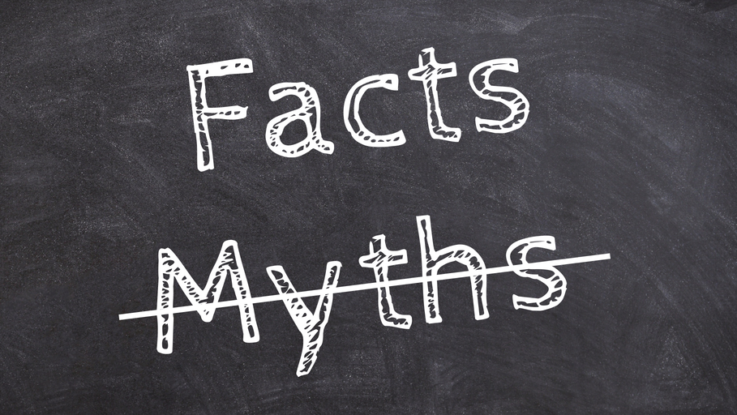
About Common Running Myths
 There are plenty of common running myths out there. Some are true like if you run into a wall, you’ll damage your nose, or if you sprint off the edge of a cliff, you’ll likely break a leg or two, or if you don’t run, then your body will turn into a blubbering mess of flab. But some myths out there, the ones who stop people running every day, are just not true.
There are plenty of common running myths out there. Some are true like if you run into a wall, you’ll damage your nose, or if you sprint off the edge of a cliff, you’ll likely break a leg or two, or if you don’t run, then your body will turn into a blubbering mess of flab. But some myths out there, the ones who stop people running every day, are just not true.
1. Running makes you skinny
One of the most common running myths. I’ve researched plenty about this because one of the main reasons I started running was to burn my beer belly fat. While it may be true that if you run the same route, the same distance, and the same time over and over again, then your body will become so accustomed to the routine that you won’t burn off that excess fat. You’ll actually store more fat from the food you eat for when you run to give you that extra energy.
So what you need to do is shock your body, shake it up a bit, and that is why by implementing interval, or HIIT training into your routine, you won’t become skinny fat. You’ll burn that fat, rather than store it, long after you finish running.
2. You should always drink sports drinks while you run
Another of the everyday running myths. I tried this when I was training for a half marathon. I even bought one of those drink storage backpacks where you can suck up the fluid through a tube. It was so uncomfortable though, and I hated the extra weight on my back. I was running in intense heat through and needed those extra fluids to rehydrate myself.
While sports drinks can replenish fluids lost when running, it’s probably not necessary unless you are running long distances or in extreme heat. If you’re going out for your usual 5km run, then water is your best option as it will rehydrate your body quicker, and healthier.
3. Running will destroy your joints

Constant pounding on your ankles, knees, and hips can’t be good for anyone. But if you’re running with the right shoes, stretching properly, and gradually increasing your distance, speed, and time, then all your joints, and especially the muscles around those joints, are likely to get stronger and fitter.
A few years back I stopped running because I had a bad knee. Then I got chatting to a mate of mine who runs quite a bit. He used to run with support around his knee to help him when running long distances. So I tried that, and it worked for a bit. Then naturally over time, the muscles around my knee began to get stronger, and I was able to run without the support.
The key is finding the right footwear for your type of foot. You could be an overpronator or underpronator which means that when your foot lands on the floor, it hits at a slightly awkward angle, which impacts your joints, especially your knees.
Not having the right pair of running shoes could do more damage than the actual running. Find your local store and get them to check out how you run. You can do home tests as well to find out how your foot naturally lands on the floor. By wearing the right shoe, you shouldn’t have any problems. Also, change your trainers regularly, especially if you’re running long distances. Find out how strength training can also help your running.
4. You need to eat a massive meal before you run
I hate running on a full stomach. In the summer when it gets so hot over here in Seville, I have to run before breakfast, at about 7 am, because it gets too hot during the day and in the evenings.
My ideal time to run is about an hour after breakfast. If I’m on a longer than usual run, I may eat slightly more protein, like some eggs with ham, to give me that extra energy, but I don’t tend to eat a huge bowl of pasta, or anything too heavy as I like to be light when running. Here are seven great pasta recipes from RunnersWorld.
Before a run, like a half, or full marathon, it’s optimal if you eat a more substantial meal at least an hour or so before to give you that extra energy. But if you’ve done your training correctly, you should have the stamina inbuilt already. Here’s some advice on race day food for runners.
5. You need to run your socks off

Running every day is not only dangerous but a waste of time. Even Mo Farah has to stop and rest now and then. Four runs per week are enough for anyone. You should be resting between most runs. If you run every day, your body is not going to have time to recover, your muscles will be overworked, and you’ll end up doing some severe damage.
I’ve tried running every day in the past, and in the end, it turned into chorea more substantial, and the pleasure disappeared, mainly because I wasn’t rested enough and didn’t have the energy to run every day.
Professional athletes incorporate rest days into their training program, whether they are runners, weightlifters, or football players. Your body can only get stronger by resting as well, so don’t overdo it.
So, there you go, some common running myths debunked. Now get out there and go for a run. Enjoy.





Leave a Reply